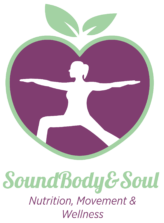
Sleep is a crucial part of our physical and emotional wellbeing and is a basic human need like water and food. Studies show that adults need between 7-9 hours of sleep within a 24hr cycle. Getting enough uninterrupted quality sleep allows us to heal, repair, grow and to develop. We all have our own body clock that tells us when we need to wake up and when we need to sleep, also known as your circadian rhythms which is regulated by hormones. When it is time for sleep, your body releases a hormone called melatonin that prepares you for rest. A little while before you wake up, your body starts to release cortisol that gets you ready to wake up. If you’re not getting enough hours of sleep, are sleeping at irregular times, or have many interruptions through your sleeping phase, you may notice some of the following:
Sleep deprivation can increase
- Stress
- Anxiety
- The risk of chronic illness (e.g. heart disease, high blood pressure, stroke, autoimmune diseases, obesity)
- Irritability
- Hunger
- Weight gain
- Depression
- Blood sugar levels (due to irregular hormone functioning)
- Heightened emotional responses; anger, frustration, mood swings, impulsive
And decreases
- Emotional intelligence
- Ability to problem solve
- Energy
- Motivation
- Quality of life
- Physical health
- Ability to learn
- Ability to cope with change
- Immunity
Here are some things you might like to try to improve your sleep quality:
- Go to bed and wake up at roughly the same time every day aiming for that golden number that is somewhere between 7-9 hours of sleep and within 9pm-7am
- Eat your last meal of the day 90 minutes before bed time ensuring it is something light to eat rather than a massive meal.
- At least 1 hour before bed, switch off all devices! Use this time as quiet time and establish a bed time routine.
- If possible, avoid bringing devices into the bedroom. Anything that may have a light, even clocks, can disrupt your sleep and keep you alert at a time where you’re needing to rest
- Keep your bedroom cool, quiet and dark where possible. This one can be challenging sometimes so just do what you can. It may be as simple as wearing a sleeping mask so your body knows it’s lights out.
- Avoid drinking caffeinated products or smoking 6 hours before bedtime. If you normally go to bed at 10pm then your last coffee or cigarette would be no later than 4pm. It can sometimes take 8hours for stimulants to leave your body so this one may be worth a try if you’re a big coffee drinker or heavy smoker.
- Take the time to be physically active. Being outdoors is also very beneficial for mental health.
- These are added bonuses; take a warm relaxing bath/shower before bed (if the kids allow), listen to sleep meditation apps, deep belly breathing, progressive muscle relaxation, stretch session and any other relaxation technique you may be aware of.
Delving in a little deeper…
Ancient Chinese medicine believes that we have a chi cycle or flow of energy that runs through our organs at certain times of the day (see photo below). In order to create a radiant life, full of abundance, energy, balance and purpose, one must follow the body’s energy cycles. This allows chi energy to run through your organs at the times they need the energy most in a continuous flowing motion and so balanced is restored throughout your body and mind.

Within the 24hour period, energy flows through each of our organs for roughly 2 hours. In this 2 hour window, we can perform certain tasks that takes advantage of this increase of energy which maximises our experience and ultimately leads to better internal flow and harmony.
- 7-9am = Stomach (Mindfulness meditation, Have breakfast)
- 9-11am = Spleen (This is your time for action. Do the tasks that require the most attention and focus)
- 11am-1pm = Heart (Self-love and appreciation time, joyful tasks, a time to connect)
- 1-3pm = Small Intestine (Take time to slow down, have lunch, have a nap if possible)
- 3-5pm = Bladder (keep duties light in this period)
- 5-7pm = Kidney (this is a time for you to switch off and unwind a little, be social, have a laugh)
- 7-9pm = Pericardium (have a light meal, light reading, self-love and maybe sex)
- 9-11pm = Endocrine and Metabolic balancing (Time to sleep)
- 11pm-1am = Gall bladder (This is when your body is healing and repairing cells)
- 1-3am = Liver (During deep sleep your body is detoxing, resting and recovering)
- 3-5am = Lungs (Deep sleep and detoxification of the lungs)
- 5-7am = Large intestine (Preparing to wake up, move bowels, meditation)
- AND THEN THE CYCLE REPEATS
On a personal note…This may all seem like a lot to take in! Just remember that you don’t have to apply all of this unless you want to. When I found myself to be super stressed delving into the thousands of sleeping techniques seemed like a lot. I started off giving myself a deadline and making sure that I was in bed by 10pm every night. Once that become my normal I then tried to make sure I was off screens by 9pm, and then I just kept adding little things at a time. It is of course still a working progress and I do have days where my sleeping rhythm is a little off but I always find my way back to what makes my body happiest which is the ultimate goal for most of us.
Remember that lack of sleep affects more than just your energy levels so I ask you one last time, ARE YOU GETTING ENOUGH SLEEP?
Sweet Dreams everyone.
Bella.B
